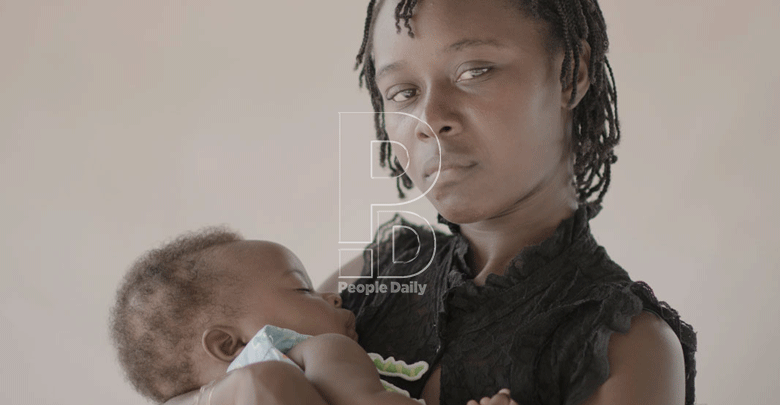Why teen mums need mental health care

Last year, as the country fought to flatten the Covid-19 curve, another crisis was looming— teenage pregnancies.
The pandemic resulted in sudden closure of schools in mid- March with the government emphasising it would be safer for children to stay home.
Unfortunately, for some girls, the outcome of the prolonged stay at home resulted in pregnancies.
Last year, a survey released by Kenya National Association of Parents showed a 40 per cent rise in teen pregnancies.
Data from Kenya Data and Health Survey show that one in every five girls between 15-19 years is either pregnant or already a mother.
A 2018 BMC Psychiatry study shows that adolescent pregnancies within urban areas predispose young girls to adverse mental health and psychosocial adversity notably depression.
The objective of the study was to determine the prevalence of depression and relatable risks that may be psychosocial among pregnant adolescents.
The research further shows that out of the 176 adolescent samples of pregnant teenagers attending antenatal clinics at Kangemi Health Care in Nairobi, 32. 9 per cent tested positive for a depression diagnosis.
Not easy
Seventeen-year-old Teresiah Njeri got pregnant during the lockdown. Despite giving birth to a healthy baby who is now nine months old, Njeri shares troubling case of her pregnancy story.
She says during the lockdown period, she found herself at a party where her then 18-year-old boyfriend took advantage of her.
“When I missed my period, I knew something was wrong. My mum persuaded me to get checked. When it was confirmed that I was pregnant, she didn’t quite take the news well.
Being the only girl child in a family of six boys, these news contributed negatively to my mum’s health,” she says.
Njeri says her mother’s reaction crippled her mentally; she felt alone and had several suicidal thoughts and attempts.
Her mother suffers from high blood pressure, and Njeri blamed herself when she was hospitalised.
As if this was not enough, Njeri says she dreaded going for her clinic appointments.
“I had the worst experiences when attending prenatal clinic. Doctors and nurses were harsh with their words, I felt as if I had committed the worst crime in the world.
Imagine being pregnant and going to school, the stares, the gossips – for me it was a lot to take in,” she shares.
Angel Otieno is yet another young mother, who faced a lot of abuse, especially from her peers.
“I got pregnant during the long holidays necessitated by Covid-19, but I was not prepared for what awaited me when I went back to school—the bashing and constant whispers behind my back— it wasn’t easy,” she reveals.
Otieno says she has the hardest time coping at school, especially because her child is just three months old.
“It’s hard to open up, especially because sometimes I have uncontrollable emotions,” she adds.
Otieno however states that she visits the Beyond Zero clinic in Kibera, and has been able to get counselling and postpartum therapy.
Unmet needs
Esther Mbau, counselling psychologist says there are several factors that increase the risk of depression among teenagers.
“Genetics is one of them. If one has a parent who has or had depression, it has been proven that one could be predisposed to get it easily.
Other factors include a history of child abuse, limited social networks, living in chaotic and unstable home environments and living in low-income communities.
In addition, teenage mothers are more likely to experience significant levels of stress that can increase risk for mental health disorders.,’’ she says.
Mbau says how teenage pregnancy and mental health of a young mother is a challenge because psychologically, these children are still growing and are not yet mature.
“Teens are not prepared for pregnancies and their brains have not developed to a state where they can handle such a responsibility.
Therefore, it is easy to fall into depression or have anxiety disorders,” she says.
Mbau states that there are also social effects such as stigma and shame of being a parent at a young age.
Studies show that adolescent mothers experience significantly higher rates of depression, both prenatal and postpartum, as compared to adult mothers.
The court of public opinion has shared that since pediatricians are in the primary care setting, they could be in the best position to first address the mental health need of adolescent parents, especially since they often talk to them for assistance.
“We should create a system whereby when a girl is discovered to be pregnant in her teens, she should see a counselor or a psychologist to take care of her mental needs.
Let’s be aware that pediatricians are already overwhelmed and even though they would want to do more, it’s realistic to allow them to do what they know best even as we try to entrench mental health services and mainstream into the general and public care system” Mbau says.
In response to Njeri’s, experience with medical practitioners during her prenatal clinic, Mbau calls upon the government to set up a clinic for young mothers so that they can seek help and guidance as well as find psychosocial support without being judged.












